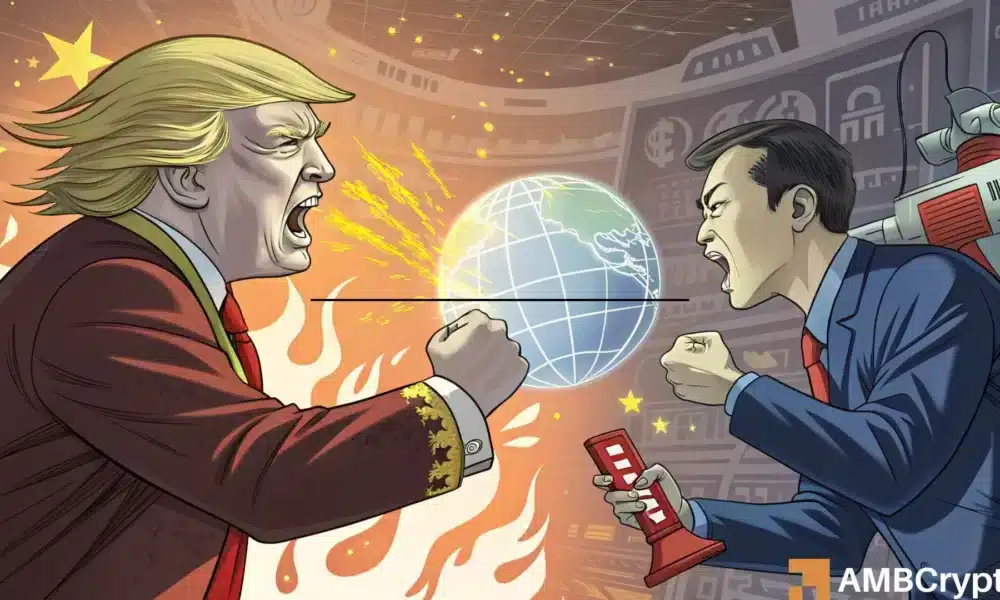
World Liberty Financial Takes Action Against Justin Sun’s Addresses
In the fast-moving world of cryptocurrency, market dynamics can shift quickly, and controversies are never far behind. World Liberty Financial (WLFI) recently made headlines after blacklisting the cryptocurrency addresses linked to TRON’s founder, Justin Sun. The action came amidst allegations of market manipulation, leaving a significant mark on WLFI’s token price and raising debates about decentralization in the crypto space.
The Events Leading to the Blacklist
According to reports, Justin Sun, a prominent figure in the blockchain landscape, acquired WLFI tokens during their presale, investing $75 million for 3 billion tokens. Additionally, he received 600 million tokens as part of an unlock bonus. Shortly after the token’s launch, Sun was accused of selling off significant portions of his holdings, a move that allegedly contributed to WLFI’s market instability. For instance, between September 2nd and 4th, Sun transferred millions of WLFI tokens, prompting concerns among investors and project stakeholders.
In response, World Liberty Financial blacklisted Sun’s wallet addresses, freezing 540 million unlocked tokens and 2.48 billion locked tokens. The project team accused Sun and a related exchange of using user funds to manipulate WLFI prices.
WLFI’s Price Struggles
The aftermath of this market controversy has been turbulent. WLFI dropped to a new all-time low of $0.1616 before recovering slightly to $0.1898. The altcoin has seen a staggering 59.6% decline from its previous peak of $0.46, recorded mere days earlier. Despite this, data from platforms like Coinglass shows sustained interest in WLFI Futures positions, with trading volume surging by 76.4% to $7.61 billion.
Additionally, the altcoin’s Open Interest rose by 0.64%, reaching $769.5 million, signaling ongoing participation in the derivatives market. However, a negative Buy-Sell Delta over three consecutive days reflects aggressive selling activity in the spot market.
Justin Sun Denies Allegations
Justin Sun has strongly refuted the allegations, claiming that his transactions were minor deposit tests without substantial market impact. “Our address only carried out a few general exchange deposit tests with very small amounts, followed by an address dispersion,” Sun clarified on X (formerly Twitter). While his statements aim to alleviate concerns, the scandal highlights key challenges facing decentralized finance and the jurisdiction of crypto stakeholders.
Investor Sentiment and the Road Ahead
Despite the controversy, some investors remain cautiously optimistic. Following the blacklisting of Sun’s addresses, WLFI saw renewed confidence among a section of its community. Analysts predict that if the selling activity stabilizes, WLFI may test a resistance level at $0.21. However, continued instability could see prices dip further, potentially testing support at $0.16.
For crypto enthusiasts concerned about portfolio volatility, tools like Ledger Hardware Wallets can ensure secure storage of digital assets, even during uncertain times.
Impact on the Decentralization Debate
The decision to blacklist Justin Sun’s wallets reignites debates about decentralization in crypto. Critics argue that such actions contradict the foundational blockchain principle of decentralization, where no single entity holds overarching control. On the other hand, supporters claim this move protects investors and restores some measure of trust amid market manipulation fears.
Whatever the case may be, the saga of Justin Sun and WLFI serves as another reminder that transparency and accountability remain crucial in the evolving world of cryptocurrencies.



